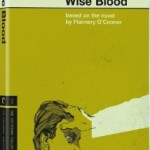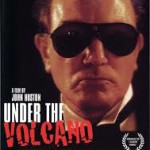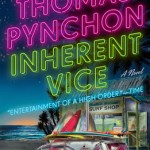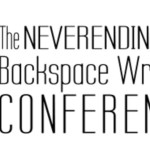 About a year ago I converted a novel-length manuscript from first-person narration to third person. It was almost impossible to do it without error. I read through the converted manuscript three times and every time I would find multiple instances of “I” and “we” and “me” and “my” that shouldn’t have been there, vestiges of the old first-person voice.
About a year ago I converted a novel-length manuscript from first-person narration to third person. It was almost impossible to do it without error. I read through the converted manuscript three times and every time I would find multiple instances of “I” and “we” and “me” and “my” that shouldn’t have been there, vestiges of the old first-person voice.
Why was that so difficult to get right? Consider this error:
He moved around the corner in a crouch, his gun held forward in a triangle, and I squeezed the trigger.
In a third-person narration, it should be “he” squeezed the trigger. The third-person narrator is above the action, outside the character, observing and reporting that “he” squeezed the trigger.
The erroneous “I” suddenly shifts the passage to a first-person storyteller, someone who was there, and who also had a gun, and who described what he saw when the man moved around the corner in a crouch. Two men, two guns.
Delete the word, “I” in the example above, and the storyteller becomes an anonymous third-person narrator, and the guy who moved around the corner is also the one who squeezed the trigger. One man, one gun.
You would think, as the author of the story, I would know how many guys and guns were in the scene. And I do. It was one guy, one gun. But that slippery pronoun, “I” went undetected past my eyes through three careful readings. Why? It’s not because “I” is a slim letter. No, it has something to do with my consciousness and how my brain works.
Currently, I am changing that story from third person back to first-person. I decided the previous rewrite had cost me too much character voice and intimacy. Since my main character was the POV in virtually every scene, I thought it the conversion would be a breeze. It hasn’t been. Consider this example:
The first one went down fast and easy. I asked if there was any more whiskey.
“Ye might as well ask if there are any fish in the sea,” his father said as he brought the bottle to the kitchen table and refilled the glass to three fat fingers.
Spot the error? “his father said…” doesn’t make sense. It should have been “my father said,” or better, “he said.”
A third-person narrator wouldn’t say “he said” because there are two men in the conversation and that would be ambiguous, so he specifies it was the father.
But if it’s a first-person narrator, the character can refer to the other fellow as “he.” It’s not ambiguous because you never refer to yourself as “he.”
But again, my question is, why are errors like this so difficult to catch?
I think it has something to do with the difference between an author and a narrator. In the error above, I lost my character’s POV. I was inside his head as he asked for more whiskey, but I stepped outside when the spotlight shifted to the father.
When the father answered, I was ambushed by a third-person narrator. If I had stayed inside my character’s head, the father’s answer would have been what my character heard. But instead, I thought of it as what the father said. That was my mental mistake.
I made the mistake because as the author, I have to make up the stuff that all the characters say. So I went into the father’s head to create the sentence and when I did that, my narrator got lost.
The narrator is an author’s persona, a kind of mask that separates the author from the voice who is telling the story. I was not drinking any kind of whiskey when I wrote the scene. When my character asks is there any more whiskey, that’s not me talking, that’s my narrator, my storyteller, making the character speak.
Perhaps if I were a trained actor, I wouldn’t have trouble staying “in character.” But the fact is, I’m also the one who exercises the craft of writing, which includes inserting tags that indicate who is speaking. Such elements of craft are of no concern to the narrator, whose job is to tell the story. We divide the labor.
The narrator, whether he takes the voice of the first-person character, or that of a third-person god, tells what happened, and I, as the author, have to manage things like pronouns, commas, and quotations marks to make it come out right. Those structural elements have little meaning of their own and belong to the author, not the narrator.
The problem is that I also control the narrator and I’m supposed to keep him separate, something very hard to do when editing. Converting narration from first- to third- or back the other way makes my mind buzz back and forth between story-telling and craft-managing like a flickering light bulb. Apparently, it’s more than my feeble mind/brain can do without error.













